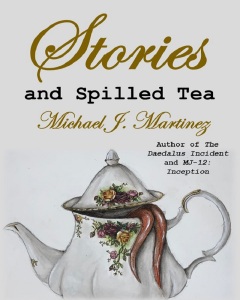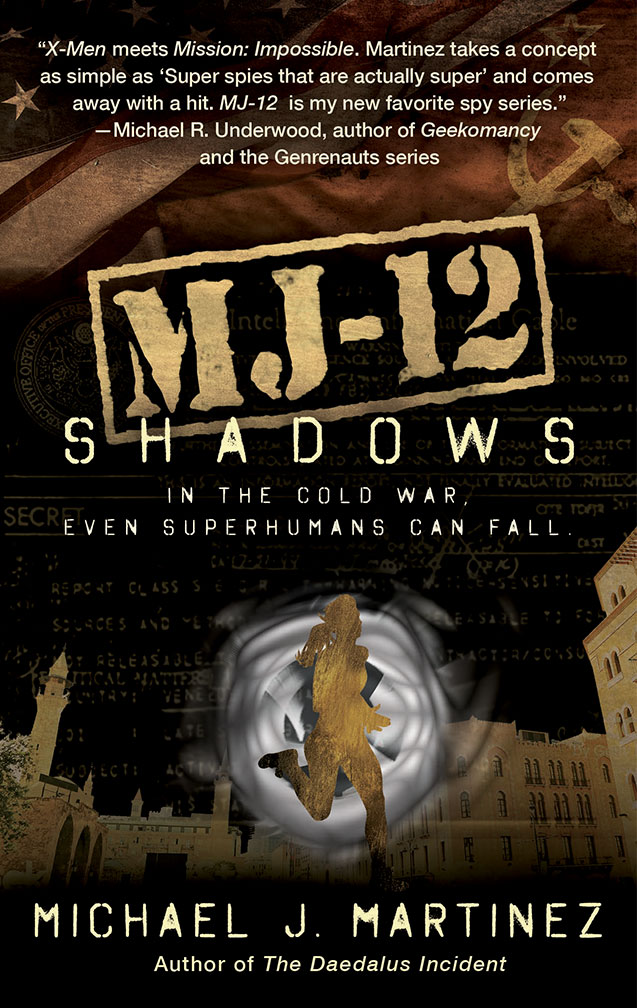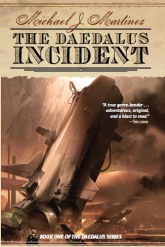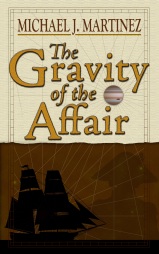As much as I can like someone I’ve never really met, I generally like Damien Walter, the Guardian contributor and fiction writer who’s currently doing the digital nomad thing in South Asia. Smart fellow, good insights into SF/F, getting his Buddha on. Much respect, Damo. But I had to disagree with this tweet today:
https://twitter.com/damiengwalter/status/572040267588481024
First off, given the choice between poverty and not-poverty, I would always, always recommend not-poverty if it’s any kind of option, especially in today’s economy and with the healthcare and retirement systems currently in place in the United States. The less we earn early in life, the fewer opportunities we will have as we get older. The system sucks, but that’s what it is.
In other words, kids, please save money whether or not you’re an artist. I’d also say especially if you’re an artist, because there’s always the chance, sad to say, that the muse dries up, that your work becomes passe, whatever. Meanwhile, the social safety net shrinks yearly. You’re on your own, so if possible, plan for your financial future as early as is personally feasible. I also recognize that it isn’t possible for many people to save, so if it is for you, perhaps note that you’re in a privileged position in that regard and leverage that opportunity for yourself and your future.
OK, that’s the end of the public service announcement — let’s talk about starving, tortured writers, because it’s something I personally can’t quite wrap my head around. (Damo didn’t talk about the emotional torture aspect; I’m adding it to the rant because there seems to be a correlation between poverty and tortured when it comes to describing writers.)
Anyway, I’ve been mashing words together for a paycheck since before I turned 21, and for the first two-thirds of my working life, it was primarily in daily newspaper or wire-service journalism. My deadlines were measured in hours, sometimes minutes, and every day was a sprint to the finish line.
Dude. I didn’t have time to get all emotional about my writing.
So there’s definitely this romantic vision of the impoverished writer in his garret, pounding away on a crap laptop as he funnels his demons onto the page, each word a heart-rending journey through his darkened emotional landscape. (Wow…that’s some fine writing just in that last bit. And I’m a good mood! Who knew?)
When I hear tell of writers espousing this lifestyle, I always want to ask: Why are you doing this to yourself?! I mean, it seems painful. But that’s just me. The fact remains that the stressors that emotional introspection and a difficult daily life can bring to the table can indeed produce excellent writing. Stripped of comfort and forced to face one’s failings, a writer may produce some truly amazing writing. So the starving, tortured writer is not a myth; it’s been done. My problem is with the overly romanticized mythology around it.
In fact, I have two problems. The first is the potential consideration on the part of the would-be writer that, yes, perhaps he or she does need to quit the day job, live in a hole and get on the emotional rollercoaster in order to produce great writing. My feeling is that if you’re not producing good enough writing while juggling a day job and the stress that goes with that, how are you going to respond when you’ve run out of rent money? Maybe you need to push yourself to brink, sure, but can we seriously recommend that as a considered course of action? I know I can’t. I find it irresponsible.
You say you need uninterrupted time, though? Fine. First, save your money; I’d say at least six months of your current salary in the bank. Then quit or, preferably, take an unpaid leave if you’re lucky enough to have that option. See if, after six months, you’ve produced something better than what you would’ve produced while juggling the day job. If so, then you can start to plan to transition to full-time writing, or a mix of writing and part-time work, and ideally that’ll include sources of income from your writing. If not, well…either way, you’re out of money, so it’s best to get back to earning some!
In other words, be responsible for your financial future and career. It’s OK…it’s not that un-hip. Promise.
Secondly, I object strenuously when anybody tries to link a writer’s lifestyle or process to the quality of his or her work (and for the record, I don’t think Damien was doing that). I have a day job and live a comfortable middle class lifestyle, complete with a house in the ‘burbs and a small, fuel-efficient SUV. I have a wife and a daughter and a cat. I brew and drink beer, watch football and talk about lawn care with the neighbors. I’m a black-socks-with-sandals-combo away from being that guy.
But I’ve written three novels, two of which are out and can be reasonably deemed successful on both a financial and critical basis. The third, The Venusian Gambit, is out May 5. I didn’t bleed for it. In fact, most of it was written in a very comfortable chair in my living room. If you somehow think that this makes my writing lesser, especially if you’re just judging on that rather than the content of the books? Sorry, but I don’t have time for that nonsense.
(True story: Got a nasty paper cut on a binder Thursday at work. Got a drop of blood on the S key of my laptop. So fine, I bled for my writing. Happy?)
Over the past couple years, I’ve made friends with a lot of writers. With just a handful of exceptions, their first novels were written while juggling day jobs — and, often, spouses and kids and mortgages. Whether they were first published in their 20s or 50s, they were on the hamster wheel of life while writing the books that would get them agents and contracts. Some have since transitioned to full-time writing, but they did so responsibly thanks to great long-term deals, and often with the support of a working spouse to bring in some baseline steady paychecks and health insurance. And some, like me, plan to continue working. And yet books are still published, good reviews garnered, royalty checks are in the mail. Awesome.
As far as the emotional torture goes, there’s no doubt that may writers — myself included now and then — will get emotional about what they’re writing. We do indeed put a lot of ourselves into our prose. But you know what? The vast majority of the time, we find writing fun. If it’s not something we enjoy, then why do it?
I do see a handful of writers, primarily on Twitter, talk about how they really have to bring themselves to an emotionally wretched state in order to produce good writing. That’s fine, and more power to you, I guess. Again, I can’t understand it, but I’m not going to question another writer’s process if it works for them. My issue is when I see people who aren’t doing that but think it’s necessary to produce good writing.
Every individual is different — Damien recognizes this, because he said as much on Twitter after the above tweet. Personally, I would shy away of saying to a would-be writer that quitting your day job or putting yourself through the feelings-blender will help make you better. It might, sure — but it might also leave you poor and needing therapy, and with nothing to show for it. As a writer, you have to find what works for you, and balance the risk-reward of your decisions with regard to your writing and your life.
And for readers, I would simply say, hey, pick up a book and read. In fact, pick up a diverse bunch of books and read. I’m a comfortable middle-class white guy, and I do hope you enjoy my books for what they are, rather than wondering if I was tortured or struggling enough. (If that’s a criteria for you, let’s go ahead and assume I wasn’t.) I also hope you pick up books from women and trans people of all orientations and expressions, from non-white writers, from writers representing a variety of social and economic backgrounds. See what writing speaks to you because of the author’s experience and how it agrees or contrasts with yours. Hell, see if the author’s background matters to you one whit or not by trying a diverse group of books and authors.
To summarize the overlong rant: This poor/tortured mythology may simply not hold true for you as a writer or a reader. Don’t think you have to do it that way.
#SFWApro











The “starving artist” mythology is an excuse for failing.
In some cases, I would agree. I do think there are those artists who are starting out, struggle, and ultimately succeed — at which point they stop starving. And there are those who, for whatever reason, NEED to struggle to produce art.
The only thing I take issue with is when folks think the tortured soul/starving bit is NECESSARY for great art.
Concur. It goes along with the ‘pay our dues’ schtick.
Perhaps they’ve already ‘paid their dues’.
A conversation on this mentality can take up multiple pages lol.
Congrats on Book 3! 😀
Thanks, Dan!
Many writers I know have soul-satisfying careers they worked their ass off to create. They have no interest in giving it up. They never consider it. They’re proud of the work they do, of the family they support, of the house they pay for, of the volunteering they do in the community. Writing is a part, an important part, of their already full lives, part of what makes them grown up, professional people. They’re proud of their books too. Self-financial torture is not on their menu. And shouldn’t be. Jesus, how old are we? 22? Good post, Michael.